It’s always a good idea to go on vacation right after you’ve lost your job. I mean, it probably isn’t such a good idea, but I seem to be making a habit of it, heading off to Morocco in 2015 just 10 days after I got sacked, and there I was again, summer of 2017, exiting my latest gig and heading off to Scandinavia! (Fortunately, the trip was mostly paid for.)
“You should rent out your place,” friends of mine said, “pay for your vacation while you’re on it!” These friends had been renting their place on Airbnb for years.
I said, “Nah, thanks, too much trouble.”
Then I went online and saw I could rent my house—a four-bedroom house, on three acres of wooded property, with lush gardens and a swimming pool, in a quaint Hudson Valley town not too far from civilization as to be inconvenient—for the eye-popping price of $900 a night.
Well, that changed the math of just what some “trouble” was worth.
Getting up the Nerve
So as I prepared to pack for my vacation and for my son’s two weeks at camp, I looked around for any precious objects I wouldn’t want to leave out while I had renters in my home. What I saw was an astonishing array of “decorative objects.” What was I going to do with the art glass, the vases, the fine ceramic candlesticks, my beloved ceramic Buddha, and the burgeoning collection of semi-precious stone objets d’art? The delicate glassware for every possible kind of cocktail tucked away in my cabinets? Nah. Way too much trouble to Airbnb.
But then again, eight or nine thousand dollars in rental income is really a LOT of money. Especially if you’re unemployed, even if you think that’s temporary. As I did.
And so, I put the house on Airbnb, bought some large plastic bins for stowing my precious pieces, and instantly began fielding requests for the house. Boom. I had two groups of renters in a day or so, covering most of the 10 days away and so launched myself into a frenzy of preparation.
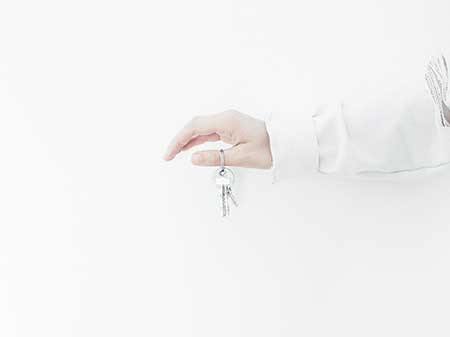
Letting go. Photo by Sylvie Tittel on Unsplash
What to Pack?
As I started to put all the beautiful things I had sitting around everywhere into the bins, though, I realized: it simply was not going to be possible to store it all. That would be like packing up 20 percent of the house in paper and bubble wrap and then laying them gently into these bins. And I clearly was going to need about 20 bins. And where would I put 20 bins!?
I loved this house, and I had decorated the shit out of it. It had been a lifelong dream to own a true house—as opposed to a New York City apartment—and to decorate it from top to bottom. And having worked in magazine publishing for a long time, I had been exposed to more high-end design than any non-millionaire should ever see in a lifetime. So when I bought the house, I did it, filling it with carefully chosen showpieces. Vintage bachelor’s chests, newly lacquered in jade green. Custom light fixtures. A large mid-century credenza filled with all the china you’d need to throw a large dinner party.
My house looked fucking perfect, exactly as it was, with all my carefully chosen vignettes and artwork and glassware and those three sets of china, and well, it was all going to stay for my renters.
Instead, what went into those bins was the items you don’t want strangers to see or touch: your underwear, your makeup and facial tinctures, your paperwork and bills and computers, the short list of unmentionables most people have knocking around in their nightstand. And in my case, I also had to put away my hobbies: boxes and boxes of beads I used to make jewelry and a trove of needle-felting supplies.
I packed it all away into my bedroom closet, made all the beds with fresh linens, bought and laid out extra towels, cleaned out the fridge, and went to Finland and Sweden and Estonia. And made a cool $7,500. Party time!
Except that money mostly went to pay the mortgage the next month.
Read More: One Way to Worry Less about Paying for Retirement
How My Home Paid My Mortgage
When I got home from the trip, I unpacked all the bins, reclaiming my space that had been only ever-so-slightly sullied by the two rounds of guests who had been there. But along with their scent, they left behind fawning reviews about my home, its décor, and my hospitality. And so when the next request came in, I said, sure.
Now it was more complicated, as I wasn’t going away. But I fled to my boyfriend’s place, and my son was still at camp. And I did this again and again that summer.
Sunday nights at 3:00 pm—checkout time—I’d head back home, open my closet, pull out the bins, and set up house again. And start another week of looking for a job. At the same time, I went to my Airbnb calendar and carefully chose which weekends I could rent and which I could set aside for me and my son. But it rapidly became clear that Airbnb kind of was my job, what with nearly 10 loads of laundry after each weekend. Beach towels for the pool, four or five sets of sheets, countless bath towels.
The truth is, I liked playing hostess. I liked reading the rave reviews and seeing my guests’ Instagram posts showing off the house and all their fun in the pool, complete with the giant unicorn pool float.
Facing Reality
What I didn’t like was realizing that I really, truly could not afford this house anymore.
The tree maintenance. The lawn care. The tick spraying. The garden work. The HVAC unit that kept needing repairs. The roof leaks. And no full-time job for me in sight.
As summer turned to fall and fall turned to winter, I kept renting out the house as many weekends as I could and for all the holidays except for Christmas. On New Year’s Eve I was able to charge $1,250 a night—but the two rounds of cleanup I had to do afterward made it almost not worth it.
Almost. I could still pay my mortgage. We had a nice Christmas. But I could not find a job.
By now, when I came back home on Sunday nights, I didn’t even bother with pulling all the bins out of the closet. I just replaced my underwear and my cosmetics and let everything else stay packed in the closet. What was the point of getting out my crafting stuff if I would have to put it all away in four days? Plus, I wasn’t enjoying hobbies anymore. I was running dire financial scenarios in my head, spreadsheets of doom, in between working on the freelance work I had been able to line up.
I had been successful! Awarded! Highly paid, nay, possibly even overpaid, for decades! But the world had turned on a dime. Bringing with it disruptive wonders like Airbnb, as well as the end of my industry: publishing.
The Cold, Hard Financial Facts
Ironically, the rhythm of the Airbnb life was soothing, a bit of much-needed irregular irregularity at a time I felt like the floor was falling out from underneath me. Winter turned to spring, and I started the heavy work of putting my house on the market. Getting the house ready for Airbnb renters required surface cosmetic adjustments; preparing the house for sale meant full scale nips and tucks, addressing leak-ish roofs and oh-so-slightly peeling house paint. And then a new HVAC. And the other new HVAC. Because of course.
At this point, not even Airbnb could cover my expenses. I was doing freelance consulting—a lot of hours for not enough money. So onto credit cards everything went. My computer died. My faith went on life support. The stress was insane.
I had renters who had booked the house for a week, six months in advance, because they were coming to the area to scout out real estate. I wasn’t expecting them until August, but as soon as my house listed, in May, they called in a panic: “You are still renting to us, yes? We have all our plans made.” Yes, yes, I assured them. This was long in the works and wouldn’t disrupt their stay.
By now my son and I were sanguine about the ins and outs of being always on the move. He spent weekends at his father’s, and I trekked north to my boyfriend’s. I’d started to make myself at home there, buying an air conditioner for his artists’ studio where the gorgeous loft windows let in allllll the (way too hot) sunlight and carving out my space in the bathroom cabinets.
His studio is 600 square feet and it was more than enough. There was a bed, a chair, a bathroom, a record player, a teeny kitchen table and chairs, a mini refrigerator—I really didn’t need much more. I didn’t need my objets d’art, my china, my jade-lacquered bachelor’s chests.
Read More: Airbnb Is Easy Cash—Or Is It?
Go Small and Go Home
Hey, turns out when I wasn’t in my house, I wasn’t worrying about how to pay for my house. And in that 600-square-foot studio that was sweet and comfortable and plenty, I learned that I was going to be okay.
I was going to sell the house. And then I was going to buy the smallest damn house in the village just north of my “mini-estate,” as the broker had called my property on the realtor’s website, so my son could graduate from his high school. And so I could continue to figure out just what, exactly, I plan to do with my one wild and precious life with all the money I’d earned and socked away into that big, glorious house, that money now serving as both my landing pad and my launching pad.
At first, I hadn’t wanted to Airbnb (Airbnb = verb here, when did that happen?), because I didn’t want to share my house. I had put so much thought and care and so much of myself into it, not least of which my dreams of a settled, grown-up life. But in the end, renting out my house and supporting myself through Airbnb for those two long, hard years, helped me let go of the house, little by little, weekend by weekend, until it was just a big, beautiful home that I had really loved and done up just the way I’d wanted to when I still had the money to do just that.
The gentlemen who rented the house that week in August ended up buying it—because they fell in love with it (and then promptly did a gut renovation, naturally). And my son and I moved into a teeny, tiny house in our village. A perfect house. For which I obsessively planned the room colors before we moved in.
My 16-year-old said to me, one night as I was shuffling paint chips, “Mom, you are never happier than when you are picking out paint colors.”
Huh. It’s amazing when your kid says something really true about you, to you.
I’m still looking for work, and I’m still trying to find my way, but my living room is a gorgeous, bold shade of warm pink (Benjamin Moore Custis Salmon) and the kitchen a deep, lovely navy called Stunning. My house is smaller—much smaller—but so, too, are my financial anxieties. And so are my hopes and my dreams and my expectations.
That may sound like a bummer, but it’s not. True, everything I thought I knew about my life blew up, first into Airbnb and then into thin air. And I had to let it all go. But I don’t miss that beautiful house. And I’m still here, waiting for my next job so I can lose it again—and take a nice vacation.
***
Stacy Morrison has worked in media, social media, and emerging media for more than 20 years, including stints leading or launching magazines such as Redbook, Modern Bride, ONE: Design Matters, Time Out New York and more. She also worked at BlogHer, a network of blogs and online influencers that reaches 110 million women, as editor in chief and VP Content Programming. She is also the author of the memoir Falling Apart In One Piece: One Optimist’s Journey through the Hell of Divorce, which was published by Simon & Schuster in 2010. Stacy describes herself as someone who is equally earnest and smart-ass, a unique feat for which she is still waiting to be recognized.

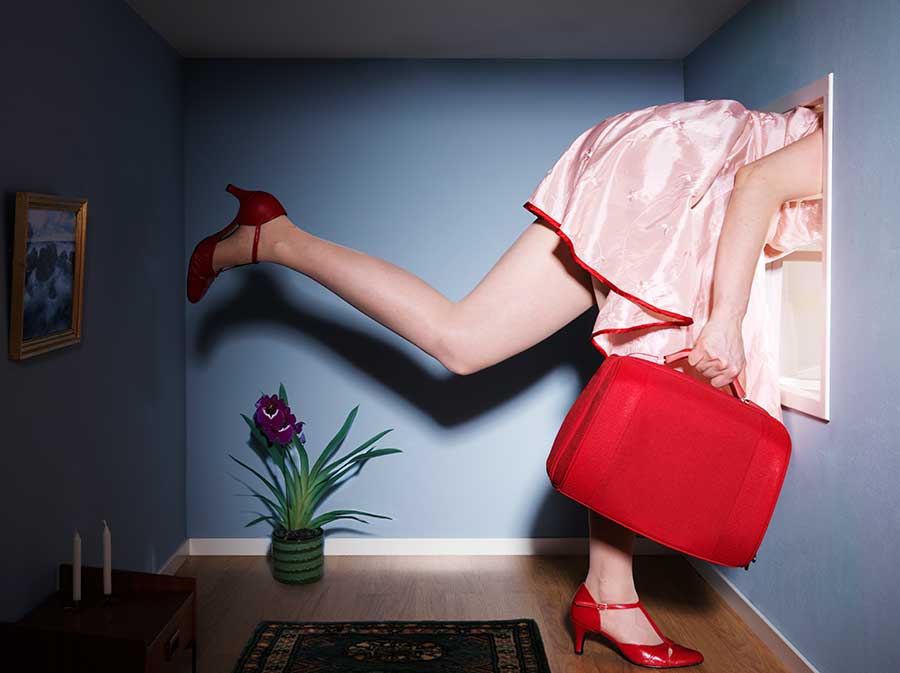

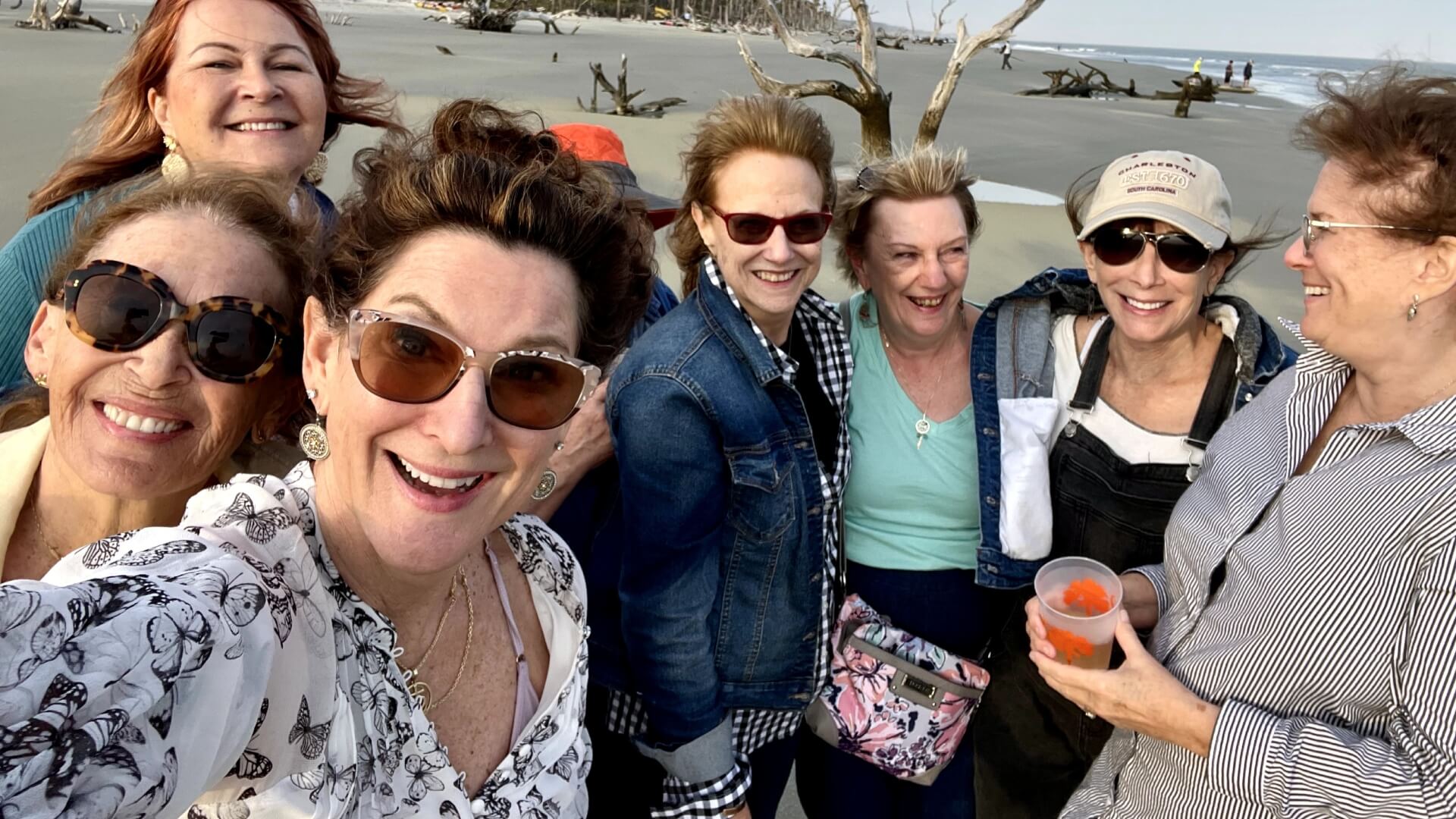
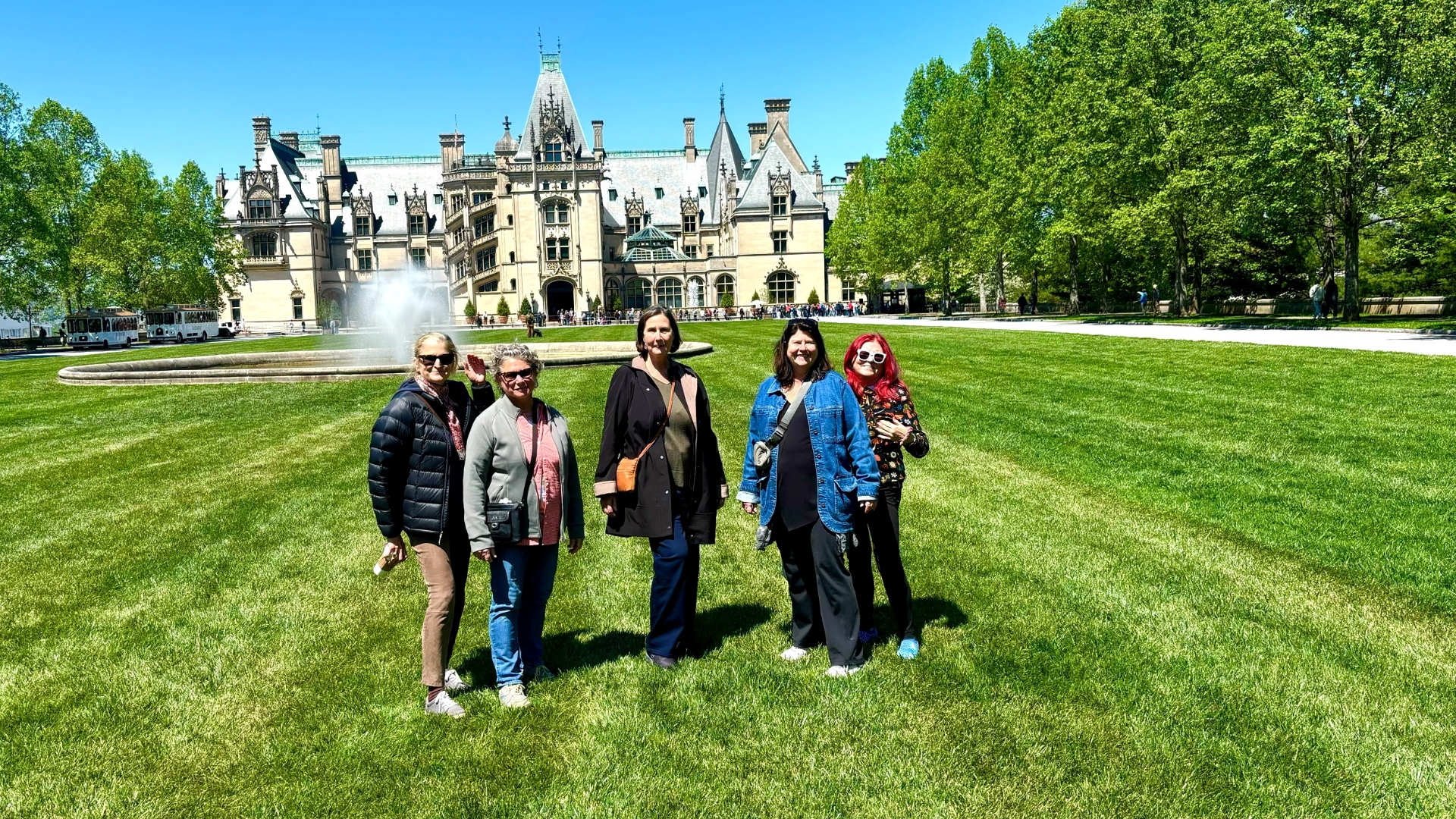

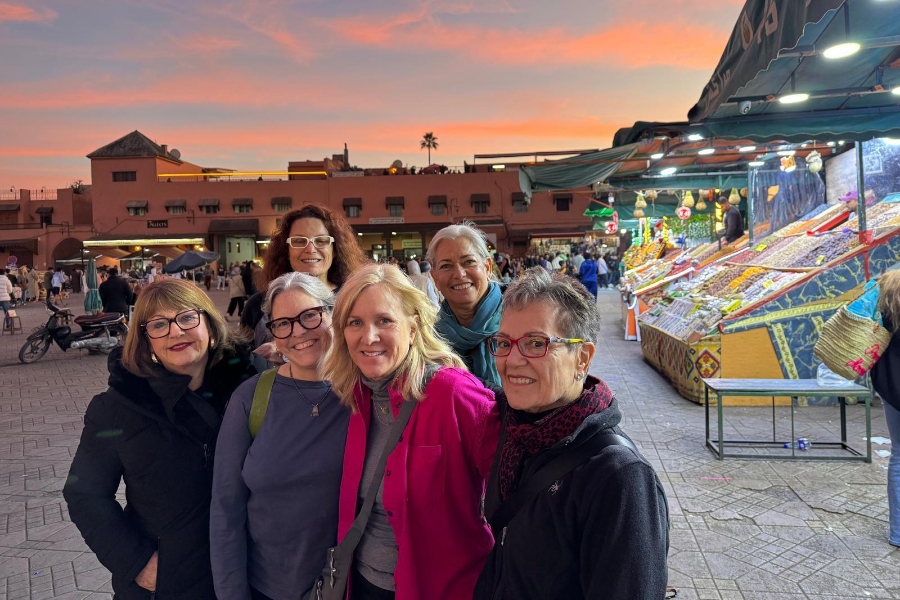



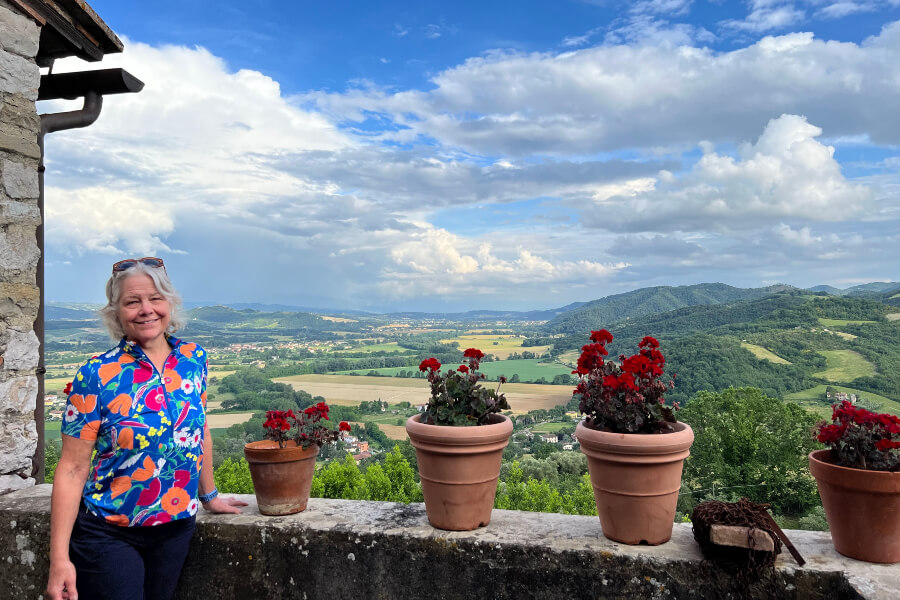
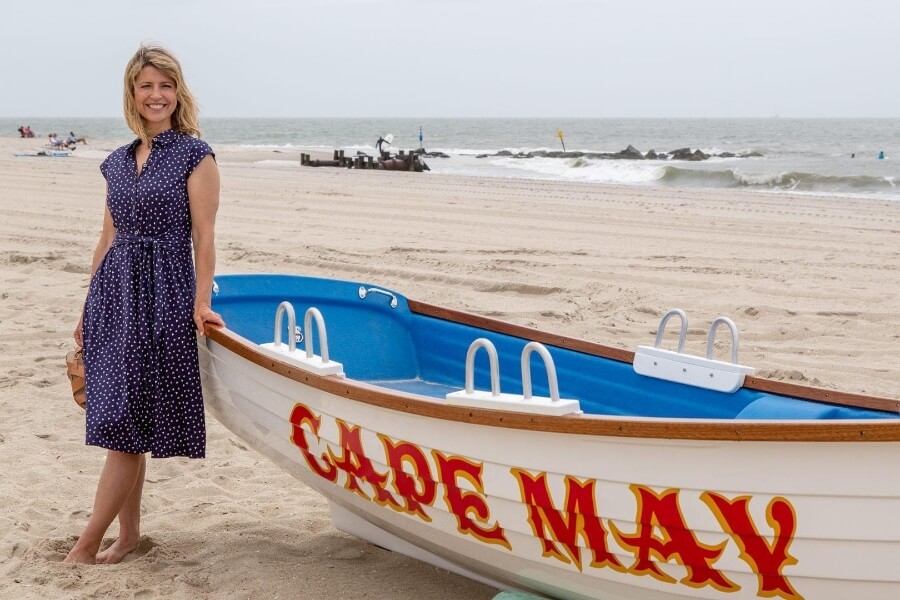
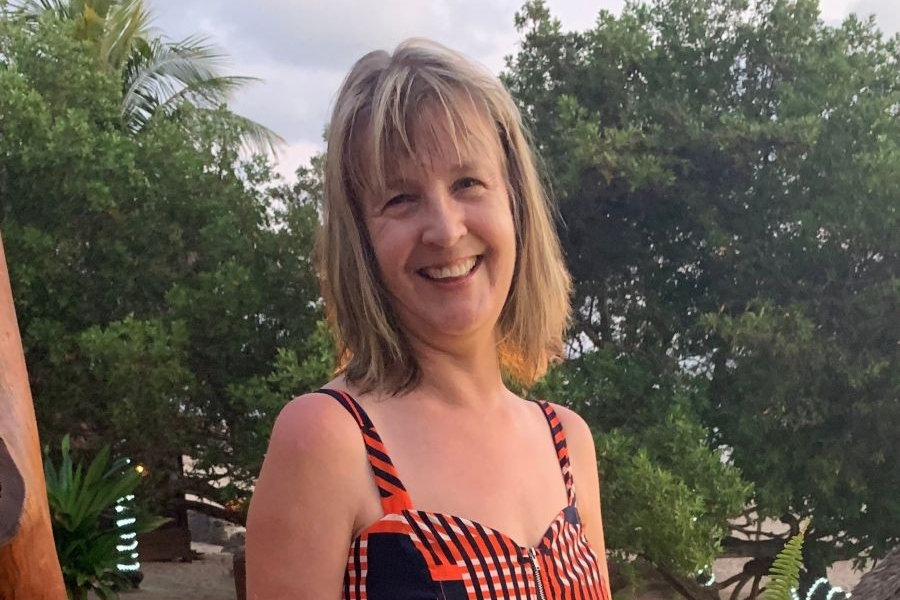








0 Comments